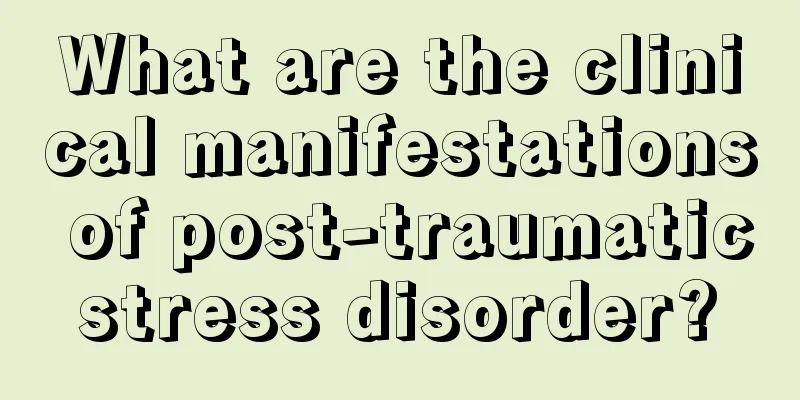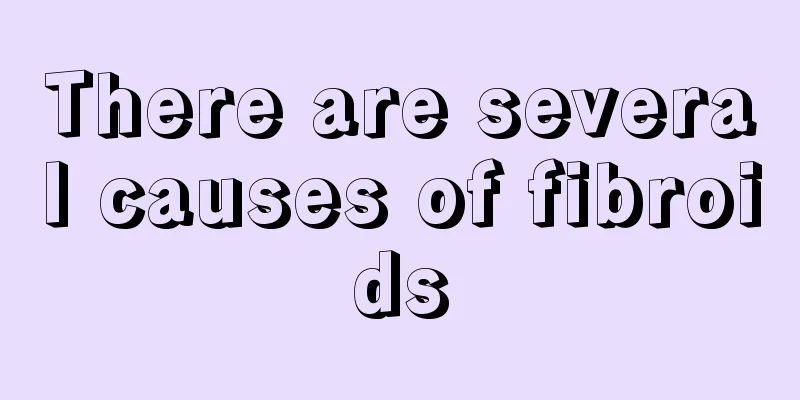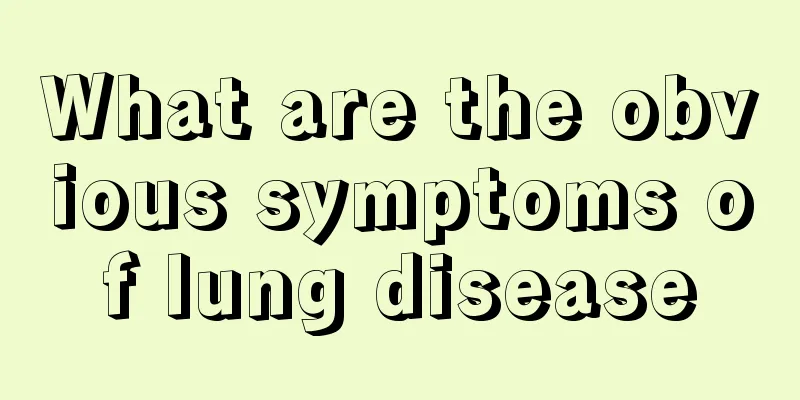What are the clinical manifestations of post-traumatic stress disorder?

|
Post-traumatic stress disorder is also called delayed psychogenic reaction, which refers to a systemic disease caused by stimulation due to trauma and other reasons. It will cause damage to the patient's body in many aspects. Severe cases will cause multiple problems, so it brings great trauma to the patient's body. Most of them appear within a few days or half a year after the trauma, so it will not happen immediately. Many small problems will cause big troubles due to time delays. Patients need to undergo physical examinations and a series of related examinations. According to the different factors of the trauma, find a suitable treatment plan. Generally, dual treatment of mental and psychological aspects is required to achieve the effect of repair. Patients should also see a psychologist regularly to avoid depression and difficulty falling asleep. Introduction Posttraumatic stress disorder (PTSD), also known as delayed psychogenic reaction, refers to an abnormal mental reaction to severe stress factors such as trauma. It is a delayed and persistent psychosomatic disease. It is a delayed and long-lasting psychological disorder caused by unusually threatening and catastrophic psychological trauma. In short: PTSD is a state of psychological imbalance after trauma. Clinical manifestations Delayed psychogenic reactions usually occur within a few days to half a year after the trauma. The main symptoms are as follows: The symptoms of PTSD are: 1. Re-experiencing: the individual will have an intrusive re-experience of the traumatic situation, and the content of the re-experience is very clear and specific. In particular, anything in life that may be related to trauma may cause an individual to re-experience the traumatic situation. And this experience will bring great pain to the individual, and may further deteriorate and produce some PTSD-related comorbidities (such as anxiety, fear, self-blame, disappointment, complaints, etc.); 2. Avoidance reaction: Due to the pain of re-experiencing, the individual will actively avoid things that may trigger traumatic experiences. On the one hand, this avoidance reaction is a protective mechanism for the individual; but on the other hand, it will delay the individual's recovery from PTSD-related disorders; 3. High alertness: It causes a relatively strong reaction to many small details. Many patients experience sleep disorders such as difficulty falling asleep and easy awakening, and show symptoms of increased alertness such as irritability or anger, easy to be frightened, and inattention. ① Traumatic situations repeatedly and involuntarily emerge in the patient's thoughts and memories, intrude into consciousness and linger, and often appear in dreams. Sometimes there will be a "replay" attack, where the person feels as if they are in danger again, and has illusions, hallucinations, dissociative disorders, etc. Sometimes, mental pain of the type caused by "being reminded of something by the scene" occurs. ② In stark contrast, some patients experience psychogenic amnesia of traumatic situations, where the events they experienced are excluded from their memory and they deny them even after being reminded. ③ Slow response to ordinary stimuli in the surrounding environment, emotional numbness, and social withdrawal. Lose interest in previous hobbies, distance yourself from people around you, and try to avoid contact with people and things related to the traumatic situation. Feeling hopeless about the future, disappointed and depressed is the dominant mood. ④ Patients may continue to show increased alertness and irritability, easy to be irritated or lose temper, be easily frightened, be overly vigilant, have difficulty concentrating, and have sleep disorders. The course of the disease lasts for more than one month, and can last for several months or even years. The severity of the symptoms fluctuates, and patients can still experience stressful experiences after many years. Treatment ⒈ For the early stages of PTSD, psychotherapy mainly adopts the principles and techniques of crisis intervention, focusing on providing support to help patients improve their psychological coping skills and express and vent related emotions. Timely treatment is important for a good prognosis. In the psychotherapy of chronic and late-onset PTSD, in addition to special psychotherapy techniques, it is very important to strive for the greatest social and psychological support for patients; the understanding of family members and colleagues can obtain the greatest psychological space for patients. ⒉ Drug treatment Antidepressants are the most common choice for treating PTSD at all stages and can achieve relatively good results. Other medications may include anti-anxiety drugs, sedatives, lithium salts, etc. ⒊Combining psychotherapy with medication. Treatment Combining psychotherapy with medication is more effective than either approach alone. According to relevant experience, supportive and explanatory psychotherapy should be adopted in the early stage to establish a good doctor-patient relationship, mainly to gain the patient's understanding and acceptance of taking medication. On the basis of the certain therapeutic effect of drugs, cognitive psychotherapy may achieve better results. |
<<: What are the symptoms of pubic folliculitis?
Recommend
Have you noticed these two side effects of double eyelid surgery?
Every female friend likes to have a pair of beaut...
What is the cause of rectal cancer
The specific cause of rectal cancer is not very a...
What are the benefits of pigeons drinking honey water
Everyone knows that the edible value of pigeons i...
Can hawthorn help sober up? These methods can also help sober up
Many people think that hawthorn can stimulate app...
What are the benefits of back tapping?
There are many meridians on the human back, and d...
Is the black centipede poisonous?
Everyone should be familiar with the insect centi...
Are there any side effects of photorejuvenation laser?
In the modern people's aesthetic view, facial...
How to provide chemotherapy care for colorectal cancer
Everyone should know that colorectal cancer is a ...
Can you get pregnant if you have brain cancer
Brain cancer is also called brain tumor. At prese...
What are the causes and treatments of urticaria?
Urticaria is a common and extremely harmful skin ...
Can a water dispenser boil water completely?
Normally when we drink water, we get it directly ...
Experts explain important dietary considerations for pancreatic cancer
After suffering from pancreatic cancer, the patie...
What are the symptoms of atrial fibrillation?
Atrial fibrillation occurs mostly because the pat...
Stubborn stains on children's clothes
Everyone knows that younger babies will spit up m...
7 situations where you can’t use Band-Aids
In daily life, many people think that everything ...









